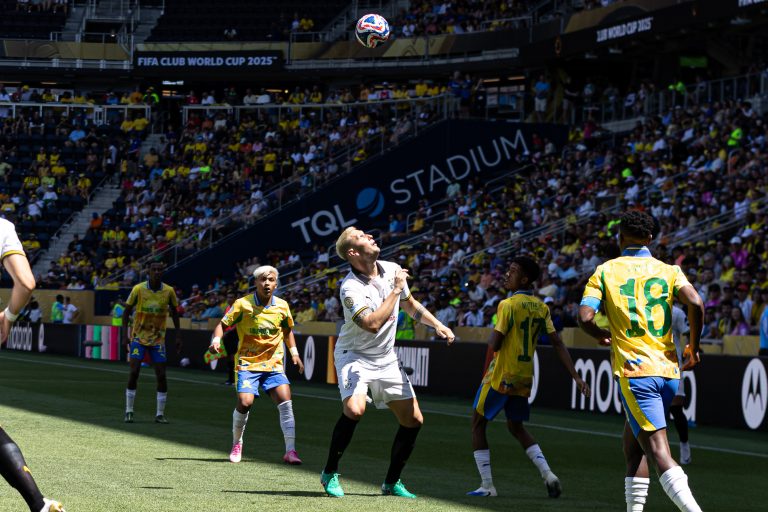Women’s Professional Soccer announced today that it has officially closed its doors, ending a second attempt at creating a professional women’s soccer league in America. The Women’s Premier Soccer League (WPSL) would like to officially thank the owners of WPS for their valiant efforts on behalf of the women’s game. While this may be the end of one league, it is not the end for professional women’s soccer.
“At the WPSL we tried to do everything we could to help WPS to survive by providing a place for their players to continue to compete,” said WPSL Commissioner Jerry Zanelli. “Now that the WPS has ended, we want to step up and continue to provide that opportunity through the WPSL Elite League. Even though it is a tremendous disappointment, we see it as a huge opportunity to build a professional women’s soccer league in a very different way than ever before.”
Zanelli is dedicated to establishing a national professional league and has been a strong force in women’s soccer for many years. One of the founding members of the W-League, Zanelli left that league to create the WPSL, which now has over 70 women’s soccer teams all across the USA, plus the WPSL Elite League.
While the announcement of the new league in early February was in response to the WPS decision, the plans for an elite-level WPSL league were already in the works, and had been announced at the 2012 WPSL Annual General Meeting in Las Vegas just days before the WPS announced plans for the 2012 season.
The original WPSL plans had a new elite league starting on the West Coast in 2013, but the need for a place for high-level women’s soccer pushed that up a year.
The eight-team WPSL Elite League includes former WPS teams Boston Breakers, Chicago Red Stars and 2011 WPS Champion Western New York Flash. Rounding out the league are WPSL sides ASA Chesapeake Charge, FC Indiana, New England Mutiny and New York Fury and independent Philadelphia Fever. The league began its inaugural season on May 10 and will continue through July.
“The legal entity named WPS went out of business,” said FC Indiana Head Coach Shek Borkowski, “but the sport of women’s football has been, is, and will continue to move forward, in a more realistic and sustainable form this time. This is not time for mourning but for renewed enthusiasm.”
Paul Riley, two-time WPS Coach of the Year with Philadelphia Independence and current head coach of New York Fury expressed appreciation for the efforts by WPS owners. “”I’m glad for the WPS owners that the legal issues are over. They have worked tirelessly, diligently and monetarily to make WPS work, so I would like to extend a huge thanks for what they did for the growth of women’s soccer.”
“We have tremendous female players in this country,” Riley continued, “and it is up to the powers that be to get around a table and provide all these professional players with a great avenue to resurrect and further develop their careers,” said Riley. “At New York Fury we are proud to have twelve previous WPS players, and we will spend this season in the WPSL Elite League working diligently to improve aspects of their game and give them a training environment where they can be competitive and prosper.”
“It is a sad day for women’s soccer,” said Boston Breakers Head Coach Lisa Cole, “but right now I am preparing for our sold-out game this weekend. We just need to find what makes sense for women’s soccer from a business perspective. The folding of the WPS does not mean the end of elite women’s soccer in the U.S. It just means we need to create a new, economically viable model.”
“I think it’s unfortunate that the WPS suspended their 2012 season,” said Ulises Terrones of Philadelphia Fever. “That being said, I believe they did a great job at laying down the framework for women’s soccer in America. As a member of the WPSL Elite League, I believe it is our responsibility to promote women’s soccer and continue to grow the sport.”
“Our goal is to create a sustainable professional league for women,” Zanelli explained. “The answer is to build from the ground up. That is how you build a league to last.”
Zanelli points to the overall strength of the WPSL and expanding interest in the Elite League for 2013. Since beginning as a six-team West Coast league in 1998, WPSL has grown to a nationwide league with over 70 teams in the two levels. Several of the original teams, including California Storm and San Diego SeaLions, continue to compete in the league. In that time two professional leagues have come and, now, gone.
“We are already in negotiations for expansion of the WPSL Elite League in 2013,” said Zanelli. “We have had several teams that have reached out to us about joining the league, and are working with groups in Miami, Houston, Dallas, Northern Virginia, Phoenix, San Diego, Sacramento and the Bay Area.”
An indication of the enthusiasm for the women’s game can be seen in the pre-season sellout of several WPSL Elite League matches and the expectation of more as the season goes on. “The fan base is there,” said Zanelli. “People need to step up and support women’s soccer if they want to see a professional league survive.”
“The WPSL has always grown from the ground up with the goal of being a sustainable league,” Zanelli pointed out. “We recognize the importance of having a high-level league to provide a critical showcase for top women players and to inspire young athletes. Our ultimate goal is to create a professional league that will last.”






